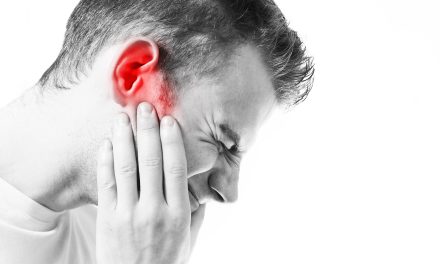Living with persistent ringing or buzzing in the ears can change daily life in significant ways. Tinnitus impacts quality of life through its effects on sleep, focus, and emotional wellbeing.
Research shows that tinnitus can reduce quality of life by causing stress, anxiety, and difficulties with concentration. Many people experience challenges in work and social situations due to the constant presence of unwanted sounds.
The good news is that proper assessment and treatment can help manage symptoms. Studies have found that children and adults experience tinnitus differently, so personalized approaches work best for improving daily function and well-being.
Key Takeaways
- Tinnitus affects multiple aspects of daily life including sleep, work performance, and emotional health
- The severity of tinnitus symptoms directly correlates with reduced quality-of-life measures
- Early intervention and proper management strategies can help minimize tinnitus’s impact on daily living
Defining Tinnitus
Tinnitus refers to phantom sound perception in the ears or head without any external sound source present. The experience varies greatly among individuals, with different sound types and intensity levels affecting daily activities and well-being.
Characteristics and Types
Tinnitus perception impacts quality of life in various ways, depending on its type and characteristics.
The most common sounds people report include:
- Ringing
- Buzzing
- Whistling
- Humming
- Clicking
Tinnitus can be constant or intermittent. Some people experience it in one ear, while others hear it in both ears or inside their heads.
Two main types exist: subjective tinnitus, which only the person can hear, and objective tinnitus, which doctors can detect during an examination.
Common Causes and Triggers
Many factors can lead to or worsen tinnitus symptoms. The most frequent causes include:
Physical Factors:
- Exposure to loud noise
- Ear wax blockage
- Age-related hearing loss
- Head or neck injuries
Medical Conditions:
- High blood pressure
- Middle ear infections
- Meniere’s disease
- Acoustic neuroma
Certain medications, stress, and lack of sleep can make tinnitus more noticeable. Caffeine, alcohol, and smoking may also trigger or intensify the symptoms in some people.
Epidemiology of Tinnitus
Tinnitus affects millions of people worldwide, with rates varying significantly across different age groups and populations. The condition shows strong links to hearing loss, noise exposure, and other health factors.
Prevalence and Demographics
Research shows that tinnitus impacts approximately 10-15% of adults globally. The rates increase with age, becoming more common in people over 60.
Women and men experience tinnitus at slightly different rates. Men tend to report tinnitus more frequently, especially those with occupational noise exposure.
Geographic location and urban versus rural environments can influence tinnitus rates. People living in industrialized areas often show higher prevalence due to increased noise exposure.
Risk Factors and Comorbidities
The primary risk factors for tinnitus include:
- Hearing loss
- Regular exposure to loud noise
- Advanced age
- Head or neck injuries
Tinnitus patients frequently experience headaches and sleep problems. Many also report anxiety and depression as related conditions.
Certain medications can trigger or worsen tinnitus symptoms. These include some antibiotics, cancer drugs, and aspirin in high doses.
People working in noisy environments face higher risks. This includes musicians, construction workers, and military personnel.
Psychological Impact of Tinnitus
Tinnitus-related distress can trigger significant psychological changes that affect daily functioning and emotional well-being. The constant ringing or buzzing sounds create both immediate and long-term mental health challenges.
Mental Health Correlations
People with tinnitus face higher rates of depression and mood disorders. The persistent nature of tinnitus symptoms often leads to feelings of helplessness and frustration.
Sleep disturbances are common, which can worsen existing mental health conditions. Many individuals report difficulty concentrating and maintaining focus during daily tasks.
Research shows that 48-78% of chronic tinnitus sufferers experience some degree of depression or low mood states.
Effects on Stress and Anxiety
The unpredictable nature of tinnitus can trigger heightened stress responses. Many patients report increased muscle tension and racing thoughts when tinnitus becomes more noticeable.
Cognitive abilities and emotional regulation may become impaired during intense tinnitus episodes. This can create a cycle where anxiety makes tinnitus more noticeable, which then increases anxiety further.
Common stress symptoms include:
- Racing heartbeat
- Difficulty relaxing
- Increased irritability
- Poor concentration
Coping Mechanisms
Sound therapy helps many people manage their tinnitus-related stress. White noise machines or nature sounds can help mask tinnitus and reduce its psychological impact.
Emotional support and counseling play key roles in adaptation to chronic tinnitus. Cognitive behavioral therapy shows particular promise in helping patients develop healthy coping strategies.
Relaxation techniques that help:
- Deep breathing exercises
- Progressive muscle relaxation
- Mindfulness meditation
- Regular physical exercise
Support groups provide valuable opportunities to connect with others who share similar experiences.
Tinnitus and Hearing Loss
Tinnitus affects quality of life more severely when combined with hearing loss. The two conditions often occur together and create challenges for communication and daily activities.
Auditory System Involvement
The inner ear plays a crucial role in both hearing loss and tinnitus. Research shows that even mild hearing loss can trigger or worsen tinnitus symptoms.
Damage to hair cells in the cochlea can lead to both conditions simultaneously. These tiny sensory cells help convert sound waves into electrical signals for the brain.
People with both conditions may experience:
- Difficulty following conversations
- Increased stress in social situations
- Problems hearing in noisy environments
- Enhanced perception of tinnitus sounds
Hearing Aid Solutions
Modern hearing aids can help manage both conditions at once. Many devices now include tinnitus masking features alongside amplification.
These devices work by:
- Improving speech clarity
- Reducing listening effort
- Providing sound therapy options
- Decreasing tinnitus awareness
Regular hearing aid use helps the brain stay engaged with environmental sounds. This engagement often leads to reduced tinnitus perception during daily activities.
Proper fitting and adjustment by an audiologist ensures maximum benefit for both hearing and tinnitus symptoms.
Social and Emotional Consequences
Tinnitus creates significant challenges in maintaining relationships and often leads people to withdraw from social activities. The constant ringing or buzzing sounds can trigger emotional distress and interfere with daily interactions.
Interpersonal Relationships
Living with tinnitus affects both the person experiencing it and their loved ones. The condition can make communication difficult, especially in noisy environments where people need to concentrate harder to hear conversations.
Many people with tinnitus report increased irritability and decreased patience during social interactions. This strain can create tension in marriages, friendships, and family relationships.
Partners and family members may struggle to understand the invisible nature of tinnitus. They might feel helpless or frustrated when unable to provide relief for their loved one’s symptoms.
Isolation and Withdrawal
The impact of tinnitus on quality of life often leads to social withdrawal. Many individuals avoid social gatherings, restaurants, or events where background noise makes their tinnitus more noticeable.
Some people experience anxiety about their tinnitus becoming worse in social situations. This fear can lead to declining invitations and spending more time alone.
The combination of social withdrawal and constant tinnitus symptoms can trigger feelings of loneliness and depression. These emotional challenges may further reinforce the cycle of isolation.
Changes in social behavior can affect work relationships and career opportunities when people start avoiding meetings or group activities.
Impact on Sleep Patterns
Many people with tinnitus find the ringing or buzzing sounds most noticeable and bothersome when trying to sleep in a quiet bedroom. Sleep disturbance affects the daily lives of both children and adults with tinnitus.
Sleep Disturbances
The phantom sounds of tinnitus often become more apparent in quiet nighttime environments. This heightened awareness can make falling asleep difficult and lead to insomnia.
Studies show significant effects on sleep quality including:
- Trouble falling asleep initially
- Waking up frequently during the night
- Difficulty returning to sleep after waking
- Reduced total sleep time
Poor sleep from tinnitus can create a cycle where fatigue makes the condition feel worse the next day. This pattern may increase stress and anxiety around bedtime.
Management Strategies
Sound therapy helps mask tinnitus at night through:
- White noise machines
- Phone apps with nature sounds
- Fans or air purifiers
- Soft background music
Bedtime habits that can improve sleep:
- Maintaining a consistent sleep schedule
- Avoiding screens 1-2 hours before bed
- Creating a cool, dark sleeping environment
- Using relaxation techniques like deep breathing
Consulting a healthcare provider about sleep medications or cognitive behavioral therapy may help when tinnitus severely disrupts sleep patterns.
Effects on Concentration and Performance
Tinnitus can impair cognitive processing and make it harder to focus on tasks that require attention. The constant ringing or buzzing sound creates significant challenges in both professional and personal settings.
Workplace Challenges
People with tinnitus often struggle to follow conversations during meetings and phone calls. The persistent noise makes it difficult to filter out background sounds and focus on important information.
Complex visual and mental tasks become more challenging when dealing with tinnitus. Many workers report needing to take more frequent breaks to manage their symptoms.
Communication with colleagues can become strained as people with tinnitus may need information repeated or miss key details in discussions.
Reduced Productivity
Daily functions and concentration levels decline when tinnitus symptoms are active. Tasks that require sustained mental focus take longer to complete.
Many people report making more mistakes in their work due to the distraction of tinnitus sounds. Simple tasks that were once routine may require extra time and effort.
Job performance can suffer even when tinnitus symptoms are mild. Workers often need to develop new strategies and coping mechanisms to maintain their productivity levels.
Quality of Life Assessments
Medical professionals use standardized tools and methods to measure how tinnitus affects a person’s daily functioning and well-being. These measurements help guide treatment plans and track progress over time.
Questionnaires and Tools
Tinnitus-specific questionnaires like the Tinnitus Functional Index (TFI) evaluate eight key areas of impact. The TFI looks at sleep, concentration, emotional distress, and social interactions.
The World Health Organization Quality of Life Questionnaire (WHOQOL-BREF) measures broader life impacts. This tool examines physical health, psychological state, social relationships, and environment.
Healthcare providers often use multiple assessments together. This combined approach gives a more complete picture of how tinnitus affects someone’s life.
Interpretation of Results
The TFI intrusive subscale shows the highest impact at 58% among measured domains.
Healthcare providers analyze scores to determine severity levels:
- Mild: Minimal impact on daily life
- Moderate: Noticeable effects on work and social activities
- Severe: Significant disruption to multiple life areas
Gender differences play a role in how tinnitus affects quality of life, requiring personalized treatment approaches.
Management of Tinnitus
Effective tinnitus management combines several treatment approaches to reduce symptoms and improve daily functioning. A mix of medical therapies, lifestyle changes, and modern technology helps many people find relief.
Medical and Alternative Therapies
Tinnitus retraining therapy helps patients become less aware of their tinnitus through sound therapy and counseling. Many patients see meaningful improvements within 3-6 months.
Cognitive behavioral therapy teaches coping skills and reduces stress linked to tinnitus. This therapy changes negative thought patterns about the condition.
Sound therapy uses white noise, nature sounds, or music to mask tinnitus. This makes the ringing less noticeable during daily activities and sleep.
Some people find relief through relaxation techniques like meditation, yoga, or deep breathing exercises. These methods can lower stress which often makes tinnitus worse.
Technological Interventions
Hearing aids with built-in sound generators help manage tinnitus while improving hearing. These devices can play customized sounds that match the pitch of a person’s tinnitus.
Smartphone apps offer various sound therapy options and tracking features. Users can adjust sounds and volumes to find what works best for them.
Bedside sound machines create peaceful environments for sleep. Options include:
- Ocean waves
- Rainfall
- White noise
- Pink noise
- Brown noise
Wearable sound therapy devices fit discreetly in the ear. They produce low-level noise throughout the day to help the brain ignore tinnitus sounds.
Advancements in Tinnitus Research
Scientists are making steady progress in understanding and treating tinnitus through technological innovations and clinical studies. Advances in brain imaging and sound therapy have opened new possibilities for treatment.
Current Studies and Trials
Modern research techniques are exploring sound-based technologies that show promise for tinnitus suppression. These tools help doctors track treatment effectiveness more accurately.
Scientists continue to study the genetic factors behind tinnitus, which could lead to more targeted treatments. This research helps identify specific biological markers linked to different types of tinnitus.
Clinical trials now focus on combining multiple treatment approaches. These include sound therapy, cognitive behavioral therapy, and new medications that target brain pathways involved in tinnitus perception.
Future Outlook
Breakthrough developments in personalized medicine may soon allow doctors to create custom treatment plans based on each patient’s specific type of tinnitus.
Advanced brain imaging techniques continue to reveal new details about how tinnitus affects neural circuits. This knowledge guides the development of more effective treatments.
Research teams are testing new sound therapy devices that adapt to each person’s unique tinnitus pattern. These smart devices show potential for better symptom management.
Frequently Asked Questions
People with tinnitus face various physical, mental, and lifestyle challenges that affect their daily activities. Medical experts have identified specific ways tinnitus impacts health and recommend evidence-based solutions for managing symptoms.
What are the long-term effects of living with tinnitus?
Living with tinnitus can affect day-to-day activities like work performance and social relationships. Many people experience disrupted sleep patterns and increased fatigue over time.
The constant presence of ringing or buzzing sounds can make it difficult to focus on tasks and engage in conversations. Some individuals develop adaptive behaviors to cope with persistent sounds.
How does tinnitus impact an individual’s mental health?
Tinnitus can significantly reduce quality of life and contribute to anxiety and depression. The constant noise can create feelings of frustration and helplessness.
Many people report increased stress levels and difficulty relaxing. Social isolation may occur as some individuals avoid noisy environments or social situations.
Can tinnitus lead to problems with balance and coordination?
Inner ear conditions that cause tinnitus can sometimes affect the vestibular system. This may result in dizziness or unsteady walking in some cases.
Not everyone with tinnitus experiences balance issues. When balance problems occur, they often relate to underlying ear conditions rather than tinnitus itself.
Are there effective treatments for tinnitus recommended by reputable medical organizations?
Sound therapy and cognitive behavioral therapy show promising results for many patients. Hearing aids can help when tinnitus occurs alongside hearing loss.
Medical professionals may recommend a combination of treatments based on individual symptoms and causes. Regular monitoring helps adjust treatment plans as needed.
Can lifestyle changes contribute to managing tinnitus symptoms effectively?
Regular exercise and stress reduction techniques can help reduce tinnitus awareness. Some people report positive experiences with relaxation methods and mindfulness practices.
Avoiding loud noise exposure and maintaining good sleep habits can help minimize symptom severity. Dietary changes, like reducing caffeine intake, benefit some individuals.
Does tinnitus have a cognitive impact, and how so?
Tinnitus can affect concentration and mental focus. Many people report difficulties with memory and learning new information.
The extra mental effort required to cope with constant sounds can lead to cognitive fatigue. Some individuals develop effective strategies to maintain cognitive performance despite these challenges.
Conclusion
Living with tinnitus creates significant challenges for daily activities and emotional well-being. Research shows negative effects on quality of life across multiple areas including sleep, concentration, and social interactions.
Professional support and treatment can help manage symptoms and improve outcomes. Comprehensive assessment tools enable healthcare providers to better understand each person’s unique experience.
The impact varies between individuals, with some experiencing mild disruption while others face more severe effects. Gender differences play a role in how tinnitus affects quality of life and coping strategies.
Support from family members and healthcare professionals makes a meaningful difference. Early intervention and proper management strategies help people maintain a better quality of life despite tinnitus symptoms.
Progress continues in understanding and treating tinnitus. New research and treatment approaches offer hope for improved outcomes and better support for those affected by this condition.

















